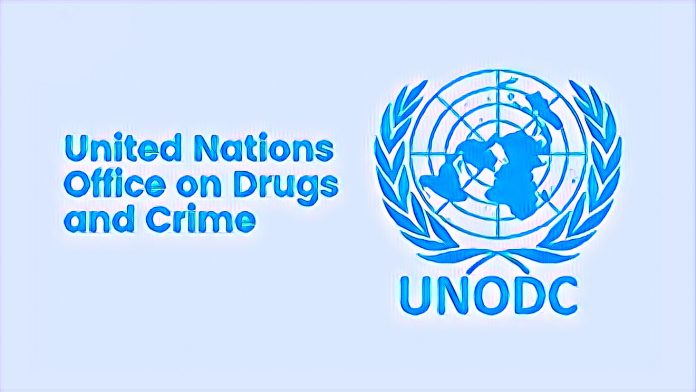The National Drug Law Enforcement Agency (NDLEA) and the United Nations Office on Drugs and Crime (UNODC) have called for intensified efforts to seize the proceeds of illicit drug trafficking from convicted traffickers. Brigadier General Mohamed Buba-Marwa (retd), Chairman and CEO of the NDLEA, emphasized this at a press conference in Abuja, launching the 2024 International Day Against Drug Abuse and Trafficking. The theme for this year’s event is “The Evidence is Clear, Let Us Invest in Prevention.”
Represented by the agency’s secretary, Haruna Shedrach, Marwa stated that targeting the assets of drug cartels aims to cripple their networks. “Apart from conviction, the assets of the convicts used in the crime or proceeds derived from the crime would be forfeited to the federal government,” he said. The passage of the Proceeds of Crime Act (POCA 2022) has further strengthened the NDLEA’s prosecution efforts.
Marwa highlighted that two serial traffickers received life imprisonment in April 2024 due to the agency’s diligent investigations and prosecution. The offensive against drug cartels, launched in January 2021, continues to yield results with numerous arrests and prosecutions of drug barons.
Deputy Country Representative for UNODC, Danilo Campisi, warned that more Nigerian youth are at risk of engaging in drug use over the next six years. “The 2018 national drug use survey shows Nigeria has a drug use prevalence of 14.4% among its youth aged 25-39 years,” he said. This rate is three times higher than the global average.
Projections indicate that by 2030, drug use in Africa will increase by 40%, driven by the continent’s young population. “This is extremely concerning, considering that 2030 is only six years away,” Campisi noted.
Campisi stressed the importance of adopting science-based approaches that prioritize treatment and prevention. “Prevention is better than cure. It’s critical for Nigeria to invest heavily in drug use preventive measures,” he urged. Describing the situation as a national emergency, Campisi called for increased investment in the fight against illicit substances.
The UNODC representative emphasized the need for scientific, evidence-based approaches to tackle the projected increase in drug use. “It is imperative that Nigeria adopts these methods to address the challenge effectively,” he added.
The call to action from both the NDLEA and UNODC highlights the urgent need for comprehensive strategies to combat drug abuse and trafficking. By focusing on asset seizure and preventive measures, Nigeria can make significant strides in addressing this growing issue.



